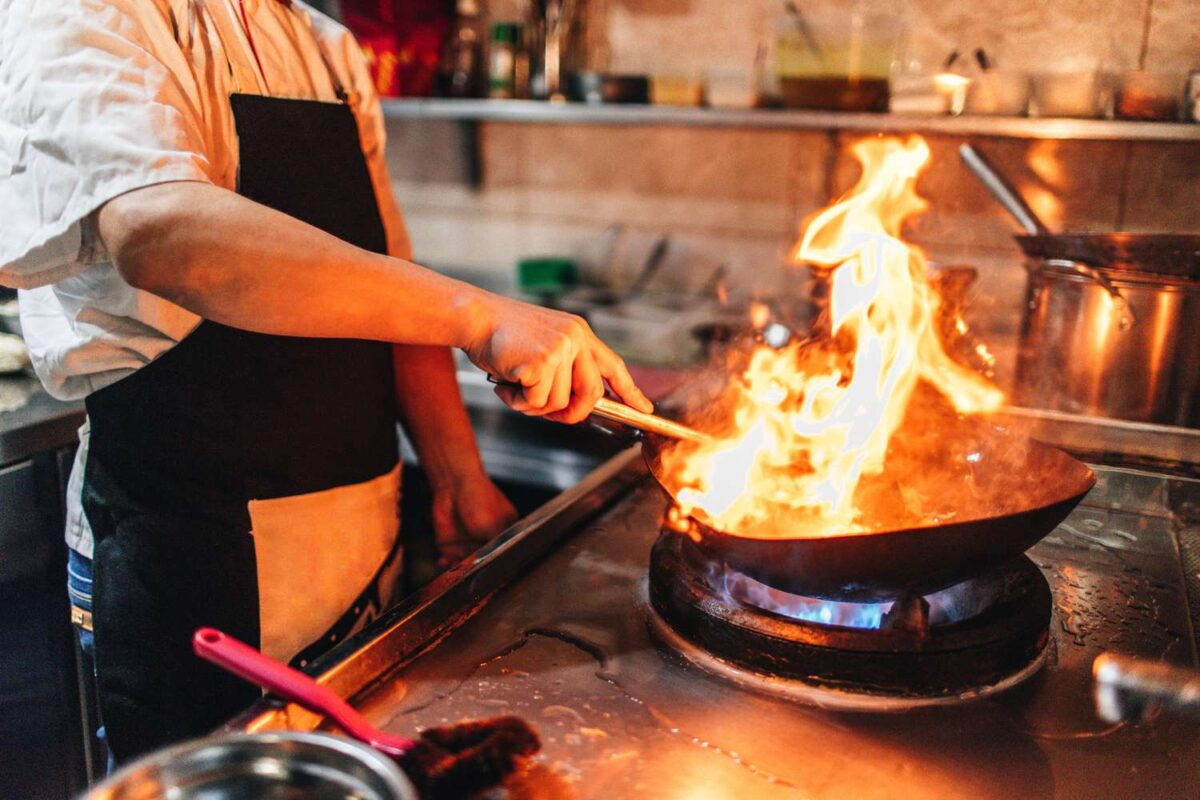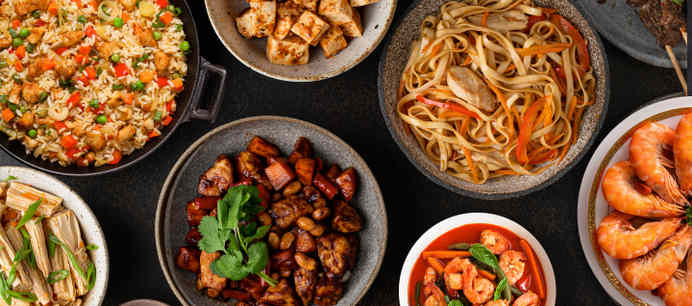Chinese cuisine has won hearts all around the world. Whether it’s the aroma of freshly stir-fried vegetables, the tender bite of dumplings, or the richness of sweet and sour pork, Chinese food is more than just a meal—it’s an experience. And behind many of these incredible meals stands a name you’ve likely seen more than once: China Chef.
But what exactly is “China Chef”? Is it a title? A restaurant? A movement? In truth, it’s all of the above. “China Chef” is the name of numerous restaurants, often run by families that have passed down recipes for generations. It’s also a term that symbolizes the expertise and passion of professional chefs trained in Chinese culinary arts.
In this article, we’ll break down who or what a China Chef is, explore their dishes, and explain what makes them so unique in the global food scene.
Who or What Is a China Chef?

The term China Chef can be interpreted in two primary ways, and both are widely accepted and meaningful.
A China Chef as a Culinary Title
When we talk about a “China Chef” in this context, we’re referring to a chef who specializes in Chinese cuisine.
These chefs often undergo years of training in culinary schools or apprenticeships, learning the ins and outs of Chinese cooking techniques, ingredient balancing, and cultural food philosophy. They’re the ones behind the scenes in Chinese restaurants around the world, transforming raw ingredients into delicious, aromatic dishes that honor centuries of tradition.
Their knowledge covers everything from how to slice meat at the right angle for a stir-fry to how to properly season a soup using the five basic flavors.
A China Chef as a Restaurant Name
Walk through any major city in the United States, and you’ll likely spot a small neighborhood restaurant called “China Chef.” These restaurants are often family-owned and serve both traditional and Americanized Chinese dishes.
While not every “China Chef” restaurant is the same, they all serve as a bridge between cultures, offering familiar takeout favorites while introducing customers to the wider world of Chinese cooking.
Both interpretations of China Chef celebrate food, family, and tradition—making the name more than just a label, but a representation of a cultural legacy.
Key Qualities of a True China Chef
Not every chef can call themselves a China Chef. There are unique qualities and skills that define this role, making it one of the most respected culinary professions in Asia and beyond.
- Mastery of Technique
Chinese cuisine relies heavily on precision. From stir-frying and steaming to deep-frying and braising, every cooking method requires excellent control over time, temperature, and texture. A true China Chef knows how to manage high-heat wok cooking, how to create silky sauces that cling just right to the meat, and how to chop ingredients to cook evenly within seconds. These skills aren’t learned overnight—they’re developed through years of practice. - Deep Knowledge of Regional Cuisines
China isn’t a monolith when it comes to food. A China Chef typically specializes in one or more of the major culinary regions: Cantonese (mild and fresh), Sichuan (bold and spicy), Hunan (fiery and sour), Shanghainese (sweet and rich), or Beijing (savory and wheat-based). Mastery of these diverse styles adds complexity to a chef’s skill set and helps them cater to a broad customer base. - Understanding of Flavor Harmony
Balance is everything in Chinese cooking. A China Chef knows how to combine the five essential tastes—sweet, sour, salty, bitter, and umami—into a single dish without overwhelming the palate. The chef must also consider color, texture, and aroma, ensuring each meal delights all the senses. - Speed and Focus
In many restaurants, chefs prepare dozens of dishes in a short period. That’s why a China Chef must be quick, accurate, and calm under pressure. Timing is critical in wok cooking where seconds can turn a stir-fry from perfect to overdone.
Signature Dishes You’ll Often Find at a China Chef Restaurant

“China Chef” restaurants typically serve a menu filled with customer favorites—both traditional Chinese dishes and Chinese-American classics. While the exact menu may vary by location, here are the signature dishes you’re likely to encounter:
- General Tso’s Chicken
This dish has become a symbol of Chinese-American cuisine. It features chunks of battered chicken deep-fried until crispy, then coated in a tangy, sweet, and spicy sauce made from soy, sugar, vinegar, and chili. A China Chef makes sure the chicken is crispy on the outside, juicy inside, and perfectly glazed. - Beef with Broccoli
A simple dish, but it requires finesse. Thinly sliced beef is marinated and stir-fried with fresh broccoli in a garlic soy sauce. A China Chef knows how to tenderize the beef, keep the broccoli crisp-tender, and create a sauce that’s neither too salty nor too bland. - Sweet and Sour Pork
Cubed pork is fried until golden, then tossed in a sticky red sauce with pineapple, bell peppers, and onions. Achieving the perfect balance between sweet and sour requires precision, and only a skilled chef can make it without overwhelming the taste buds. - Lo Mein Noodles
Egg noodles are stir-fried with soy sauce, sesame oil, vegetables, and meat or tofu. This dish is popular for its chewy noodles and savory sauce. A China Chef ensures the noodles don’t stick together and that every bite is evenly flavored. - Dim Sum Favorites
Many China Chef restaurants also serve dim sum—small plates like steamed buns, dumplings, and spring rolls. These require delicate preparation, consistent folding techniques, and a deep understanding of texture and moisture balance.
These dishes may be familiar, but their success depends entirely on the skill of the chef preparing them.
READ MORE
Aroma Rice Cooker Instructions Made Simple
Cuckoo Rice Cooker – A Game-Changer for Your Kitchen
China Chef Restaurants Across the U.S.
From New York to California, and everywhere in between, “China Chef” restaurants are part of the American food landscape. They’re not usually flashy or upscale, but they’re dependable, loved, and often family-run. Here’s what makes these spots special:
- Affordable Dining Experience
Most dishes cost between $8 and $15, making China Chef restaurants a go-to choice for families, students, and busy professionals looking for a tasty and budget-friendly meal. - Large Portions Built for Sharing
Meals often come in generous sizes, served with a side of white rice or fried rice. Many customers find that one dish can serve two, especially when ordering family-style. - Customized to Your Taste
China Chef restaurants are known for adjusting spice levels, swapping meats for tofu, or removing allergens like peanuts or MSG upon request. This makes them more flexible than fast food chains. - Fast and Reliable Takeout/Delivery
With the rise of online ordering and food delivery apps, most China Chef locations now offer quick and efficient takeout or delivery services. Customers can place orders from their phones and enjoy restaurant-quality meals at home.
What Makes Chinese Culinary Culture So Unique?
Food in Chinese culture is about more than nutrition. It’s about balance, harmony, respect for nature, and family connection. Here’s what makes the culinary culture behind China Chef so powerful:
- Yin and Yang in Food
Chinese chefs consider the balance of heating and cooling foods. For instance, spicy or fried items (yang) might be paired with cucumber or tofu (yin) to achieve harmony. - Meals Are Shared, Not Individual
In Chinese dining, dishes are placed in the center of the table, encouraging everyone to take small portions and enjoy a variety of tastes. This promotes community and appreciation of the food together. - Flavors Must Be Balanced
The five basic tastes—sweet, sour, salty, bitter, and spicy—are used in moderation, to enhance, not overpower. A dish should always feel “complete” in your mouth.
Pros and Cons of Dining at a Typical Chinese Chef Restaurant
Every dining experience has its strengths and drawbacks. Let’s explore what you can typically expect:
- Pros:
- Quick Service: Meals are often ready within 15–20 minutes, perfect for those in a rush.
- Delicious and Filling: The flavor depth is rich, and portion sizes are generous.
- Budget-Friendly: Meals are affordable without sacrificing taste.
- Menu Variety: From spicy to mild, meat-based to vegetarian, there’s something for everyone.
- Cons:
- Menu May Be Overly Americanized: Some restaurants offer mostly Westernized dishes and don’t feature traditional options.
- Nutritional Concerns: Fried foods and sodium levels may be high, especially in takeout-friendly items.
- Quality Varies by Location: Because many “China Chef” restaurants are independently owned, service and flavor can differ greatly.
China Chef in the Modern World: Adapting with the Times

Today’s China Chefs aren’t just preserving tradition—they’re innovating. Here’s how they’re evolving:
- Health-Conscious Menus:
More restaurants are offering low-sodium sauces, brown rice, and steamed veggie dishes to meet customer demand for healthier meals. - Plant-Based Options:
Tofu, mushrooms, and mock meats have gained popularity, allowing vegetarians and vegans to enjoy Chinese classics. - Fusion Flavors:
New generation chefs are experimenting with Chinese tacos, Szechuan pizza, and Korean-Chinese BBQ hybrids. - Tech-Savvy Dining:
Touchscreen ordering, QR code menus, and active social media marketing are helping China Chef restaurants stay relevant in a digital world.
Final Thoughts
Whether you’re talking about a masterful culinary expert or your neighborhood’s beloved takeout spot, the term China Chef represents more than just a name. It’s a celebration of flavor, culture, family, and tradition.
From sizzling woks to sweet sesame sauces, China Chefs worldwide continue to connect generations through food. They respect the past but aren’t afraid to explore the future. That makes the China Chef experience so special—it’s not just about what you eat, but how it makes you feel.
